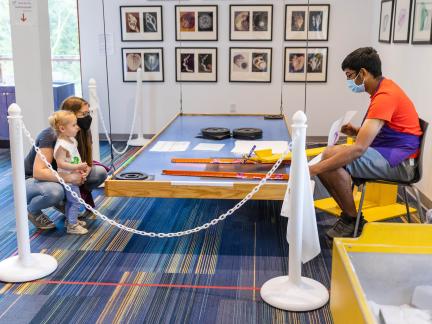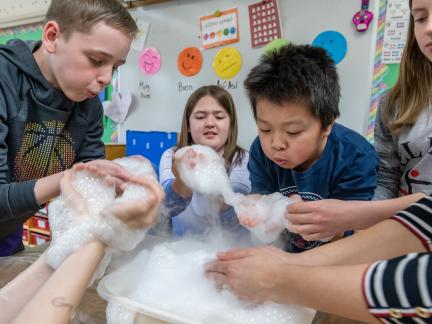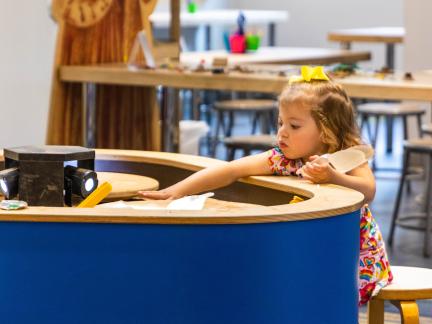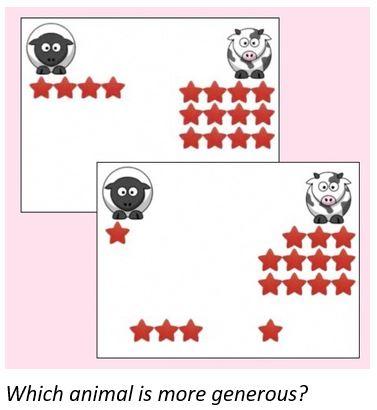Which One Is Nicer?
By the time they reach preschool age, children are remarkably adept at evaluating others. That is, they understand that someone who shares is more generous than someone who doesn’t share, and that someone who shares more is more generous than someone who shares less. However, children tend to focus on how much is shared, without taking into account how much of that resource the person had to begin with. For example, children will consider someone who shares 3 of 5 stickers as less generous than someone who shares 4 out of their 20 stickers, because sharing 4 is “nicer” than sharing 3. We are interested in learning how we can improve children’s understanding of this process, which is referred to as proportional moral evaluation.
Since September 2016, the Boston College Infant and Child Cognition Lab has been partnering with the Discovery Museum to learn about children’s early numerical abilities and how they may be important for other life skills. More than 300 museum visitors have stopped by our table at the museum (typically on weekends) to participate in a one-time short study. In doing so, they help us learn more about children’s numerical abilities while also hearing about the latest research in cognitive development.
In one of our studies, we are exploring how counting may promote an understanding of generosity in preschoolers. In this study, children use an iPad to view several pairs of animals that are “sharing” their star stickers. In some pairs, an animal may give a greater absolute number of stickers but a smaller proportion. Children are asked to judge which animal was nicer. Critically, some children are first asked to count all of the stickers the animals have before they share; the others are not.
Our preliminary results show that children who were prompted to count first generally showed better proportional moral evaluation (judgment of others based not only on what they give, but also what they have to start with). This study suggests that counting is an important tool that can influence how children view others’ generosity.
Children of all ages are welcome to participate in research projects much like this one at the Discovery Museum. If your child is interested in being a child scientist, make sure to stop by our table on the weekend!
The Infant and Child Cognition Lab is situated in the Psychology Department at Boston College, headed by Dr. Sara Cordes. Research in the lab focuses on understanding how infants, children, and adults keep track of quantity and how early abilities relate to later mathematics achievement. This blog post was written by Nadia Chernyak, a postdoctoral scholar in the lab.






Comments
Add new comment